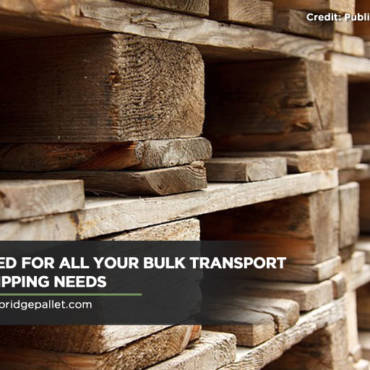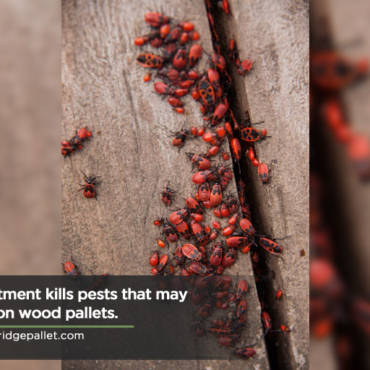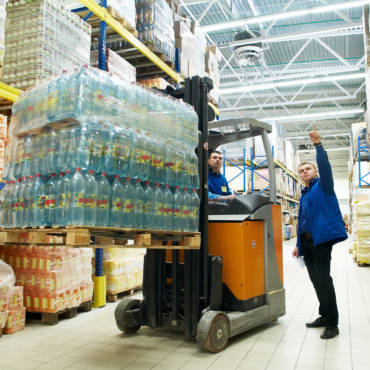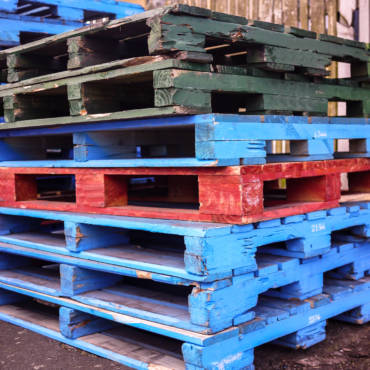Wooden pallets, crates, and wood dunnage are all considered wood packaging materials (WPM). Any products shipped overseas accompanied with WPM will require to be certified and accompanied with an approved IPPC stamp (International plant and protection convention) in accordance to the ISPM 15 standards.
Why is it important to heat treat wooden pallets and crates?

It is required by law for export.
Canada mandates the import requirements for WPM indicated in the International Standards for Phytosanitary Measures No. 15 (ISPM 15). This standard was launched by the (IPPC) International Plant Protection Convention aiming to protect our forests and products against the spread of pests and contamination. Any WPM entering into Canada must consist of and approved IPPC stamp in accordance to the ISPM 15 standards and the appropriate documentation. The same rules apply to all export shipments overseas and where mandated.
Prevents pest infestation.
Heat treatment is the approved preferred method to eliminate the risks of wood boring insects spreading. As per the ISPM 15 standards, heat treating WPM at 56C to the core of the wood for a period of 30 minutes will ensure that any insect larva will be killed off. As well this process will make the material less desirable for insects to bore and lay eggs due to the lack of natural moisture originally present in the wood.
No worry about delays.
Ensuring the proper products and documentation are used for your shipment will be very important at the port of entry. Without it, you risk load quarantine and rejection of entry. Following the processes required will eliminate unnecessary costs which could be in the thousands of dollars.
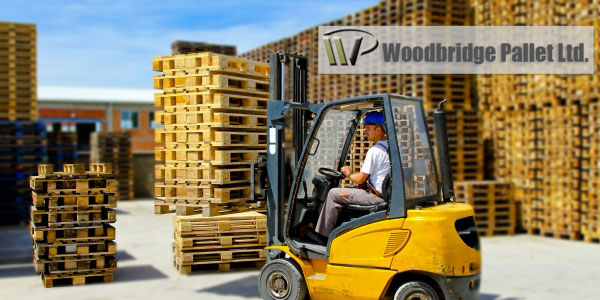
Woodbridge Pallet Ltd, 1-800-361-7798 offers a wide range of HT Certified products. Connect with one of our pallet professionals to find the best options to suit your needs.
Heat Treating Processes
There are varying methods for heat treating lumber. Some more effective than others and is dependent upon the end user applications required. Some processes use heat and moisture over a matter of hours and other processes are simply low, dry heat applied over days (Kiln Dry). Predominantly, softwood lumber production in Canada, is processed and dried in kilns (KDHT) to an average moisture content of 9-20% to supply the housing and construction industry throughout North America as well as overseas demand. Pallet and crating production materials are normally fallout production from the grading process to these industries. Trees are not harvested for the purpose of pallet or crating production.
So what are the benefits?
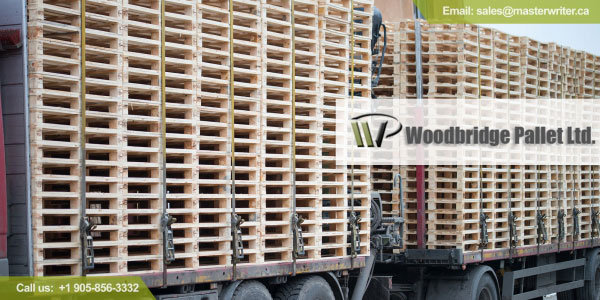
The only approved method in Canada to comply with ISPM #15 standards. No chemicals.
Once treated to ISPM #15 compliancy, the packaging materials are certified permanently, unless a component of a specific wood package such as pallets, has been altered. Other rules apply to meet certification again.
Kiln Dried lumber provides strength, durability, less shrinkage, less warping, cleaner and easier to work with, and will result in low risk of mold growth.
If you require a certified products from an approved supplier or more information for a better understanding, call Woodbridge Pallet Ltd @ (800) 361-7798.

